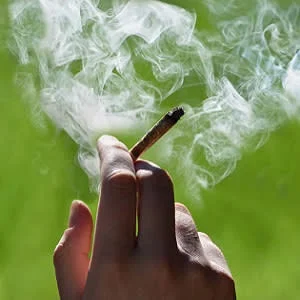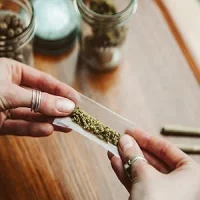Marijuana is one of the most commonly used recreational drug today. Cannabis can have systemic reactions that could potentially affect perioperative outcomes.
In this review, the authors outline the most important pharmacological aspects and pathophysiological effects that need to be considered during the perioperative management of chronic cannabis users.
There are a number of reasons for this closer monitoring. First, synthetic analogues have higher potency and have a higher risk of complications. Second, high liposolubility of cannabis causes rapid accumulation in fatty tissues, thus prolonging its elimination time. Third, the systemic effects of cannabis and the pharmacological interactions with anaesthetic agents can lead to serious consequences.
The most notable cannabinoid is tetrahydrocannabinol (THC), which is the psychoactive compound in cannabis. Cannabidiol (CBD) is the other major constituent of cannabis. Low doses of cannabis have been associated with tachycardia, hypertension, and increased contractility with high levels of norepinephrine. High doses of cannabis enhance parasympathetic tone, which could lead to bradycardia and hypotension. Vascular complications can result from cannabis exposure, including arrhythmias, coronary spasm, sudden death, cerebral hypoperfusion, and stroke. Also, cannabis users also are at risk of bronchial hyperactivity, upper airway obstruction, postoperative hypothermia, shivering, and increased platelet aggregation.
Keeping these factors in mind, it is evident that the perioperative management of patients using cannabis, whether they use it for recreational or medical purposes, can be quite a challenge for anaesthesiologists. However, the interaction between cannabis and general anaesthetic agents is still quite unclear.
Here are some things that are highlighted in this review:
- The administration of THC produces an increase in heart rate and conjunctival congestion followed by euphoria, drowsiness, short term memory and concentration impairment, and reduced cognitive ability.
- There can also be a dose-dependent increase in heart rate and systolic blood pressure in naive cannabis users.
- Increased heart rate, left ventricular contractility, and cardiac output have also been reported in experienced users after heavy daily consumption of marijuana.
- Both the recreational and medical use of marijuana has been associated with severe cardiovascular disorders.
- High liposolubility of cannabinoids results in accumulation in fatty tissues, which in turn delays elimination and increases the risk of drug interaction up to 5 days after exposure. This can cause sustained tachycardia in patients receiving general anaesthesia within 72 hours after cannabis exposure.
- Ischaemic stroke is also a common vascular side effect reported in cannabis users. Studies report a 2.3 to 2.9 fold incidence of cerebrovascular ischaemia in young cannabis users compared to tobacco smokers.
- Preoperative cannabis smoking is associated with postoperative airway obstruction. It is thus recommended that elective surgery should be postponed if the patient has smoked marijuana shortly before it.
- Alveolar haemorrhage and bronchiolitis are also associated with a high dose of THC as is pulmonary embolism.
- Cannabis exposure is linked to decreased body temperature. Hypothermia and shivering are frequently observed in cannabis users during the perioperative period. Increased heart rate, hypoxaemia, oxygen consumption, oxygen delivery, myocardial ischaemia, and acidosis are common physiologic effects of shivering.
- Cannabinoids have both pro-coagulation and anticoagulation effects.
- THC prolongs the action of some intravenous anaesthetics such as pentobarbital, thiopental, ketamine, propanidid and alfaxalone/alfadolone. Dose-dependent effects of THC have also been observed with the use of propofol, sevoflurane, and isoflurane.
- Concomitant use of cannabinoids and opioids can exacerbate acute pain and increase the incidence of opioid misuse.
- Some experts believe that cannabis can potentiate or prolong the effects of neuromuscular blockers.
The review highlights the need to introduce protocols that are designed to reduce perioperative complications and improve postoperative outcomes in chronic and naive cannabis users.
Source: Journal of Clinical Anesthesia
Image Credit: iStock
References:
Echeverria-Villalobos M et al. (2019) Perioperative care of cannabis users: A comprehensive review of pharmacological and anesthetic considerations. Journal of Clinical Anesthesia, 57:41-49.
Latest Articles
Respiratory, Cardiovascular, anaesthesia, perioperative management, cannabis
In this review, the authors outline the most important pharmacological aspects and pathophysiological effects that need to be considered during the perioperative management of chronic cannabis users.










